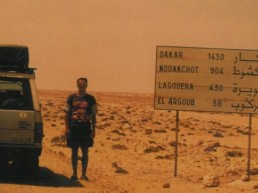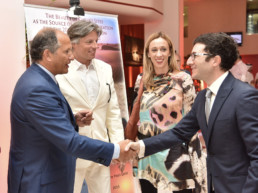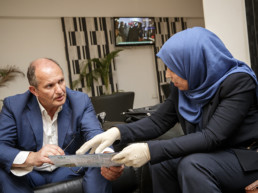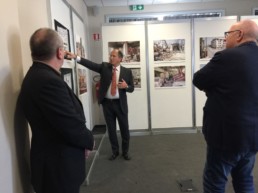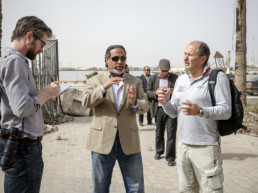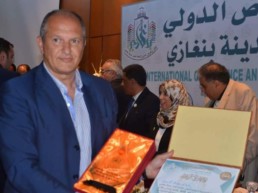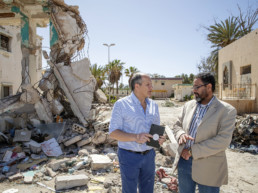I was lucky enough to start traveling as a child, meeting people different from those who lived back in my hometown, with intriguing new customs.
I have been traveling to Africa since the mid-1980s, when people had to use Michelin road maps to get around – there were no satellite navigators and, to be certain of being on the right track, you had to stop and talk to the locals.
My passports are full of stamps from so many countries, my memory is full of images and my address book is filled with telephone numbers with the most varied international dialing codes. I met the Africa one sees when traveling on an off-road vehicle, the Africa of the holiday resorts, the sub-Saharan Africa of my international cooperation projects to combat malnutrition.
Then I came to combine my passion for traveling with the activity that represents Show Yourself’s core business: supporting SMEs (small-medium enterprises) during the internationalization process.
So, I organize business missions to bring “the Italian know-how, and the made in Italy brand” to countries where not many people go: Libya, the Ivory Coast, Qatar, Oman and the Arab Emirates.
I was awarded the title of Internationalization Manager by IMIT (Italian Managers for International Trade) in Milan, I have a university background in Political Science and International Relations and a long-term financial and business management experience.
I like exchanging ideas with passionate, socially conscious entrepreneurs who focus on quality, and I try to help them deal with the challenges presented by exportation – something that today, with the stagnation of domestic demand, represent the only positive component of the aggregate demand.
Today, for the Italian SMEs, exporting has become a key element that must feature in the business plans, due to the globalization, to the drop in transport costs, to the growing cultural integration that leads to a homogenization of the final demand, and to the latest technological developments.
But it is necessary to have a cultural approach that takes into consideration the characteristics of each individual market and a strategy that is consistent with the company’s strategic choices. In summary, one must decide where to go and how to go there, limiting the risk of getting lost going from one fair to another, from one continent to another, without a reference map, without a well-defined plan.
For a company, expanding abroad means facing new stimuli and requests, bypassing domestic problems, achieving corporate goals of growth, diversification and consolidation.
To seize the opportunities that the Foreign Markets can offer to Italian SMEs, it is necessary to anticipate the difficulties with a strategic, conscious, far-sighted attitude and with a correct planning of the resources to be allocated, both human and financial, for the next 3-5 years.
Otherwise, the risk is to find yourself carrying out a series of promotional activities or commercial attempts without a precise design and without knowing what to expect. The results are never quick to arrive, but the same also happens on the local market: being known, being appreciated, being “bought” is rarely quick.
Having a plan that allows you to periodically take stock of the situation and to be able to verify whether or not you are in line with the set objectives is fundamental. In other words, it is necessary to define the objectives that we want to achieve, to understand which countries we can develop our reference market in, and to know how to access each individual country.
No less important are the research activities related to economic, demographic and geographical data, to the development stage of each different country and to the current dynamics, to the level of competition, without forgetting the skills needed to carry out an effective screening.
Such as, for example, the correct assessment of the country risk, which is the result of the multiple combined effects of economic risk, political risk, market risk, monetary risk and natural barriers such as geographical distance, cultural distance and psychological distance. In short, seizing opportunities is sometimes the result of an entrepreneur’s intuition, but much more often success derives from a correct process that has identified the right priorities, the most strategic countries with the best potential, and where to invest with the goal of settle in and to develop.
My company, together with all its partners, is ready to talk to you about your next steps outside our borders to go and seize opportunities.
Luca Bargilli
Founder and Administrator
My company, together with all its partners, is ready to talk to you about your next steps outside our borders to go and seize opportunities.


